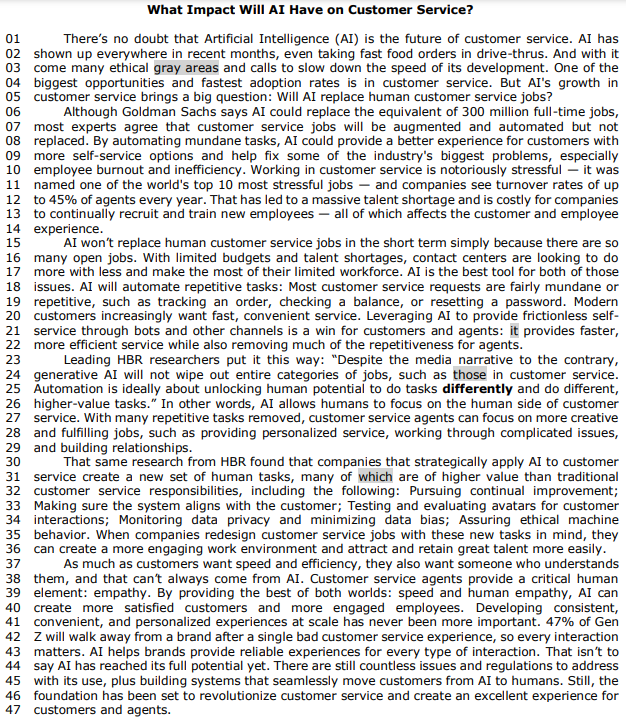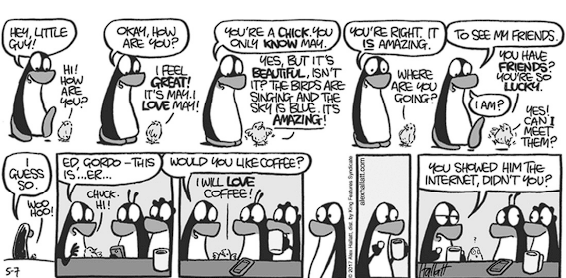Questões de Concurso
Foram encontradas 1.559 questões
Resolva questões gratuitamente!
Junte-se a mais de 4 milhões de concurseiros!

I. In “AI could provide a better experience” (l. 08), the word “better” is the superlative form of the irregular adjective “good”.
II. In “One of the world’s top 10 most stressful jobs” (l. 11), “most stressful” is a superlative structure and “most” is used because “stressful” is a long adjective.
III. In “It provides faster, more efficient service” (l. 21-22) there are two comparative structures. We add -er to the short adjective “fast”, and “more” to “efficient” because it is an irregular adjective.
Which ones are correct?


Internet: <alexhallat.com> (adapted).
Judge the following item, according to the preceding comic strip.
In the comic strip, it is possible to find examples of
sentences in the present, past and future tenses.

Internet: <alexhallat.com> (adapted).
Judge the following item, according to the preceding comic strip.
The words “beautiful” (third box) and “lucky” (fifth box)
belong to the same word class.